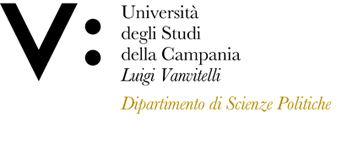Giuseppe CIRILLO
Insegnamento di STORIA MODERNA
Corso di laurea in SCIENZE POLITICHE
SSD: M-STO/02
CFU: 6,00
ORE PER UNITÀ DIDATTICA: 36,00
Periodo di Erogazione: Primo Semestre
Italiano
| Lingua di insegnamento | italiano |
| Contenuti | Descrizione dei contenuti del corso: Il corso, intendendo fornire le coordinate generali per la conoscenza dei fenomeni storici, si sofferma sui principali eventi e processi che improntano l'età moderna e contemporanea, determinandone assetti,itinerari, caratteristiche, articolazioni ed esiti.In particolare, viene sviluppata l'analisi dei seguenti temi: dall'esplorazione geografica al colonialismo; stato moderno e rinascimento; l'impero di Carlo V e le lotte per il predominio europeo; la Riforma protestante; Controriforma e Riforma cattolica; l'età di Filippo II; la crisi del Seicento; l'Olanda e l'Inghilterra nel XVII secolo; l'Assolutismo; il caso emblematico della Francia di Luigi XIV; le relazioni internazionali e le guerre europee del XVIII secolo; il riformismo settecentesco; la rivoluzione americana; la rivoluzione francese; l'ascesa di Napoleone Bonaparte; i Savoia e le nobiltà italiane. |
| Testi di riferimento | A.MUSI, Storia moderna, Milano, Morcelliana 2020 |
| Obiettivi formativi | Conoscenza e capacità di comprensione. Lo studente dovrà dimostrare una conoscenza almeno sufficiente degli argomenti indicati nel programma; dovrà dimostrare la capacità di comprendere la materia, con riguardo tanto agli istituti analizzati quanto ai princípi e alle regole che governano il sistema degli stati moderni europei. Dovrà dimostrare, inoltre, di saper elaborare testi e e contenuti a partire dagli argomenti trattati. |
| Prerequisiti | Non sono previsti prerequisiti |
| Metodologie didattiche | L’attività didattica si svolge mediante lezioni frontali e attività seminariali. Sono previste attività seminariali con docenti di rilievo nazionale e internazionale. |
| Metodi di valutazione | L'esame prevede una prova intercorso, superata la quale si accede, facoltativamente, alla prova orale. |
| Altre informazioni | I non frequentanti sono invitati a contattare il titolare dell’insegnamento per ulteriori chiarimenti circa il programma d’esame. |
| Programma del corso | Il corso di Storia Moderna e Contemporanea si rivolge a quanti vogliono acquisire competenze politico-istituzionali e di cultura politica sugli stati moderni europei. In particolare, sono studiati i concetti di base da un punto di vista dell’ordinamento politico- istituzionale , anche alla luce delle importanti novità degli ultimi anni. |
English
| Teaching language | italiaan |
| Contents | The course intends to provide the general tools useful to acquire knowledge of historical phenomena. In order to do so, it focuses on the major events and processes which shaped Early and Late Modern Age set-ups, paths, characters, structures and results. In particular, the following topics will be analysed: from the Age of Geographic Discovery to Colonialism; the modern State and the Renaissance; the Empire of Charles V and the struggle for predominance in Europe; the Protestant Reformation; the Counter-Reformation and the Catholic Reformation; the age of Philip II; the crisis of the 17th century; the Netherlands and England in the 18th century; Absolutism; the emblematic case of Louis XIV’s France; International relation and 18th-century European wars; the 18th-century reforms; the American Revolution; the French Revolution; the rise of Napoleon Bonaparte; |
| Textbook and course materials | A.MUSI, Storia moderna, Milano, Morcelliana 2020 |
| Course objectives | Knowledge and understanding. Students shall demonstrate an at least sufficient knowledge of the topics included in the course syllabus. They shall also demonstrate an understanding of either the institutes analysed or the principles and rules on which the system of modern European states is founded. Moreover, they shall demonstrate that they can elaborate texts and contents on the basis of the topics discussed. |
| Prerequisites | There are no prerequisites. |
| Teaching methods | Frontal teaching method and seminars. These latter will be held with the participation of national and international teachers. |
| Evaluation methods | The examination final score will be based on the following criteria: • Fail: the candidate has not achieved any of the training objectives; • 18 to 21: sufficient level. In particular, the candidate has achieved the learning outcomes of the “knowledge and understanding” descriptor; 22 to 24: fairly good level. In particular, the candidate has achieved the learning outcomes of the “knowledge and understanding” and “applied knowledge and understanding” descriptors; 25 to 26: good level. In particular, the candidate has achieved the learning outcomes of the “knowledge and understanding”, “applied knowledge and understanding”, and “making judgements” descriptors; 27 to 29: very good level. The candidate has achieved the learning outcomes of the “knowledge and understanding”, “applied knowledge and understanding”, “making judgements”, and “communication skills” descriptors; 30 to 30 with honors: excellent level. The candidate has achieved the learning outcomes of the “knowledge and understanding”, “applied knowledge and understanding”, “making judgements”, “communication skills”, and “learning skills” descriptors. |
| Other information | Non-attending students are invited to contact the course teacher for further clarification concerning the syllabus. |
| Course Syllabus | The course of Early and Late Modern History is for those who wish to acquire competence in the field of politics and institutions as well as of political culture concerning modern States in Europe. In particular, basic concepts will be studied from a political and institutional perspective. That, also in the light of the relevant new elements emerged in the latest years. |








